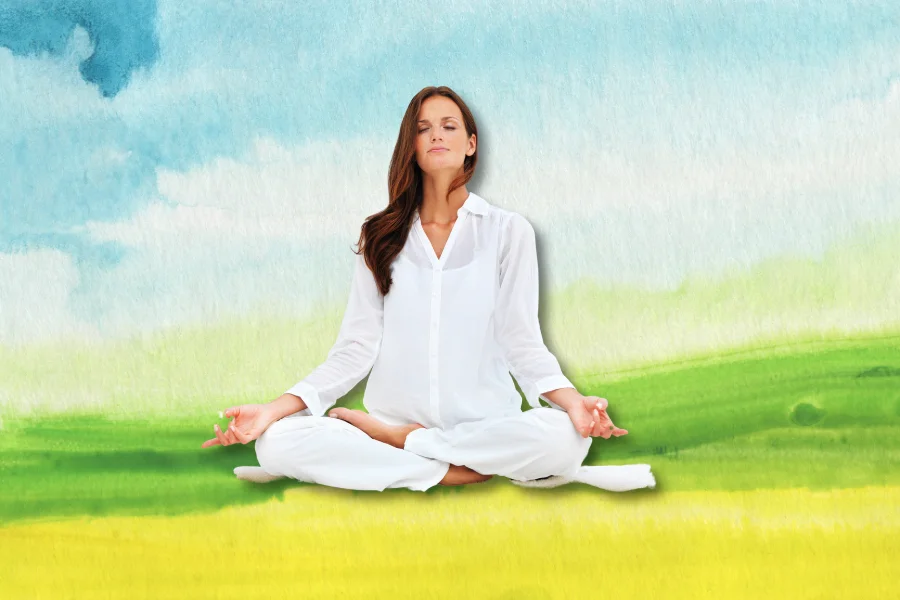
Table of Contents
Toggle
Microdosing has gained significant attention lately, especially in the spiritual communities. It’s interesting how people are incorporating the practice of microdosing with other practices such as Yoga and medication. But are there any reported benefits of this combination?
Although testimonials are powerful, there are still significant questions about the processes behind microdosing and the degree to which its alleged benefits are due to substance effects rather than solely psychological ones. Let’s take a better look at why people are combining microdosing with yoga and meditation.
Microdosing may affect people differently, although when we look at all the reported benefits we can conclude and round them up. The benefits one may experience depend on multiple factors such as which microdosing schedule they are using, what are the doses, what’s their mental state, and what intentions are set. Usually, the effects of microdosing that mostly affect meditation and Yoga are:
Meditation is a mental practice that has been around for millennia and is used in many cultures today. At its core, it involves awareness, relaxation, and focus.
Meditation has roots in the ancient civilizations of China and India and has extended to many other cultures and religions. In Tantric, Buddhist, Taoist, Shamanic, and Hindu traditions, it has been an essential practice. Around the world, meditation has changed over time to meet a variety of spiritual and lifestyle requirements. Modern approaches like mindfulness, yoga, and microdosing still heavily draw from these old ideas and techniques.
Meditation serves as a means to clear the mind and improve health and overall well-being. Meditation usually involves concentrating attention on a specific focal point, which helps to lessen or even stop the constant stream of ideas that race through our minds all day and even while we sleep. This attention can be as simple as focusing on our breathing, but it can also involve complex rituals and instruction from instructors or practitioners who have received guided meditation training.

Various ancient cultures, including the ancient Greeks, recognized the advantages of integrating microdosing with meditation. For instance, they used the herb called “Kanna” to enhance their meditation practices, on the other side of the world ancient Chinese used plant-based elixirs like cannabis and wolfsbane to enhance their meditation experiences in the pursuit of enlightenment.
Nowadays, many people are also implementing microdosing into their meditation. The most commonly used substance for microdosing is Psilocybin as it can potentially improve concentration, creativity, and overall well-being. According to anecdotal reports on Reddit, microdosing can help people who are struggling to keep their focus on breathing. There are also suggestions that this combination is not suitable for people who have never meditated before, after all, trial and error is the best solution to tailor this ancient practice to your personal needs.
Originating in ancient times, yoga was initially practiced as a way to connect with the divine. It has changed significantly throughout time, absorbing many different forms and styles.
Yoga is a lifestyle that functions as a comprehensive educational system for the body, mind, and inner soul. It promotes a disciplined way of life based on the ideas of higher thinking and simplicity. The body is seen as a vehicle for the soul in the context of yoga; humans are souls occupying bodies, not the other way around. The term “yoga” derives from Sanskrit, meaning “union” or “to yoke,” signifying the union of the mind and body through various elements such as:
Asanas, or the physical postures of yoga, provide effects that transcend beyond the body. They promote mental and physical health as well as well-being. Yoga efficiently rejuvenates and balances the entire system by harmonizing the activities of all organs under the intelligent guidance of the mind.

While the West’s interest in yoga has been growing over time, the bond between psychedelic substances and Western research was rekindled in the 1990s. Reports from 2016 showed that more than 31 million Americans have tried yoga. Yoga’s comprehensive approach, which encourages flexible bodies and healthy minds, is the source of its benefits. However, microdosing may potentially improve this relationship, according to anecdotal reports.
For many years, the use of plant medicine in yoga has generated debate and curiosity. The first sutra of the fourth chapter of Patanjali’s Yoga Sutras describes several paths to spiritual enlightenment, including the use of therapeutic herbs. According to literature such as “Yoga Plant Medicine Psychedelic Transformation,” plant medicine may be a useful instrument for spiritual awakening and enlightenment.
According to Yoga practitioners on r/yoga, microdosing and practicing Yoga go hand in hand. People describe it as taking a microdose before a Yoga session makes them more focused on breathwork with improved coordination of the breathing exercises and poses, feeling more in tune with their body. If you want to learn more about Microdosing and Breathwork, we also have a carefully crafted article on the topic.
Microdosing has shown potential to improve numerous aspects of practicing Yoga or meditation. While the majority of reports are anecdotal, people report that microdosing may offer a deeper connection to their practice, aiding in concentration and self-awareness.
As we continue to explore the potential synergy between microdosing and ancient practices, such as yoga and meditation, it’s crucial to approach this integration with respect for tradition. In the end, every person’s path is different, therefore thoughtful reflection and investigation are crucial when thinking about microdosing in addition to spiritual and wellness practices. If you are still not ready to commit to a full microdosing regimen, try our 2-Week Microdosing Course and see how microdosing affects your meditation or Yoga practices.
Subscribe to our newsletter to get updates and special offer!
FOR ADULTS (21+) ONLY. Do not use with SSRIs unless supervised or a titration protocol has been set up by your doctor. Effects may take up to 1 hour. Common side effects: nausea, dizziness, anxiety. Do not drive or operate machinery. Store in a cool, dry place. Seek medical help for severe reactions. Keep away from children & pets. Not FDA approved. This product is not intended to diagnose, treat, cure, or prevent any disease. The purchaser assumes all risks and liabilities associated with its use. For more information, schedule a free 15-minute consultation.
This item is currently out of stock!
By adding it to your cart, you confirm a backorder purchase, and we will ship it as soon as it becomes available.